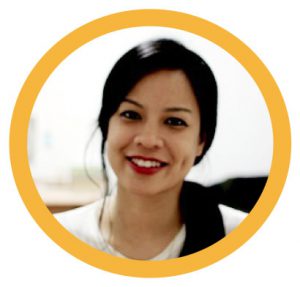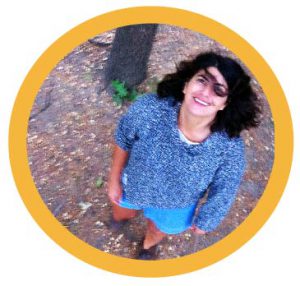We depend on your support to help fund:
- Fellowships for the next group of immigrant journalists with great stories to tell.
- Recruiting editors and journalists of the highest caliber to mentor fellows and help address the lack of diversity and inclusion in American newsrooms.
- Expanding the number of workshops we offer in podcasting, audio production, and story development.
The shortcode is missing a valid Donation Form ID attribute.
Donate to FI2W by Mail
Feet in 2 Worlds
276 Fifth Avenue, STE 704 PMB 19
New York, NY 10011
Aurora Almendral on her Fi2W Fellowship Experience:

Feet in 2 Worlds trained me in radio and helped get my stories on PRI’s The World and WNYC — major broadcasters I had no idea how to break into. Some of my favorite and most popular stories, including one on the globally uniting appeal of Maggi seasoning and a Thanksgiving story on exploitative labor practices in New York’s organic farms, were produced with the guidance of Feet in Two Worlds.
Feet in 2 Worlds trained me in radio and helped get my stories on PRI’s The World and WNYC — major broadcasters I had no idea how to break into.
Without Feet in 2 Worlds, I would not have had the confidence to pitch NPR. But more than confidence (when Typhoon Haiyan hit the Philippines) I actually called Jocelyn Gonzales, frantically, from Manila at what must have been an inconvenient hour in New York, and said, “Jocelyn, NPR just took a spot. What’s a spot and how do I make one?” She answered my questions, talked me through the mechanics of what they’d want, how to file, then, sensing that I still wasn’t comfortable, Jocelyn told me to start it with: “Today, in Manila….” That’s exactly how my first spot started. The news item was Typhoon Haiyan, the strongest storm ever to make landfall, causing vast devastation that led major international news outlets for a couple of weeks. I filed more than a dozen spot news reports in three days, and many more stories since.
I actually called Jocelyn Gonzales, frantically, from Manila at what must have been an inconvenient hour in New York, and said, “Jocelyn, NPR just took a spot. What’s a spot and how do I make one?”
The support, training, and mentorship from my Feet in 2 Worlds fellowship had an impact that is easy for me to measure. Before the fellowship, I was barely a journalist. Less than three years later, I make a full-time living filing stories I love and believe are important, for outlets like PRI’s The World, NPR and the BBC World Service. I credit the start I got with Feet in 2 Worlds for making this happen.
 Catalina Jaramillo on the Value of Her Feet in 2 Worlds Fellowship Experience:
Catalina Jaramillo on the Value of Her Feet in 2 Worlds Fellowship Experience:
To be honest, I would have to attribute most of my present interest in radio to Feet in 2 Worlds. Before I was selected to be part of this amazing team, in 2010, I hadn’t had any professional experience making radio or writing for an English-language outlet. Both John Rudolph and Sarah Kramer gave me the tools and trust I needed to translate and expand some important stories I was covering for El Diario/La Prensa for a much bigger audience. By expecting the best of me and by pushing me further than my editors, they made me become a better and ambitious reporter. Finally I was getting some real interest and support from someone.
By expecting the best of me and by pushing me further than my editors, they made me become a better and ambitious reporter.
In 2012, I bought my first professional radio kit and left for Mexico to find out how immigration was looking from there. Later in 2013, I co-founded Mil M2, a pop-up art and civic center in Santiago, Chile, where I created an online community radio station with 17 shows and streaming music 24/7. We started by building a studio, training almost 100 neighbors to become radio producers and fundraising for equipment. I also produced/hosted my own one-hour show: Historias de Mil M2. Making the radio station was amazing, and when Mil M2 ended after a year, part of the radio team re-organized to create a new station, Radio La Central.
Any of these would not be possible without the training and support I got from Feet in 2 Worlds.
Any of these would not be possible without the training and support I got from Feet in 2 Worlds. I recommend this experience to every young reporter covering immigrant communities and I urge everyone to contribute to this amazing, and now 10-year-old, project.

